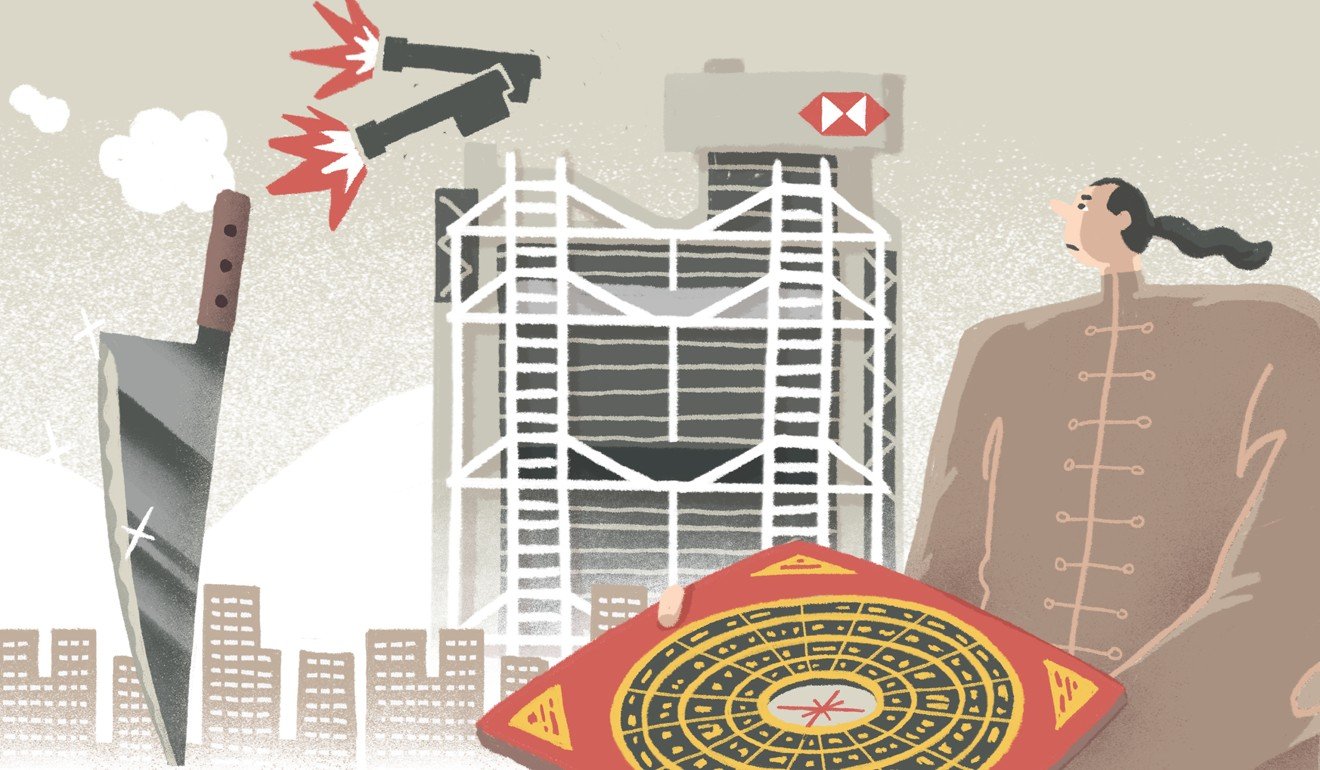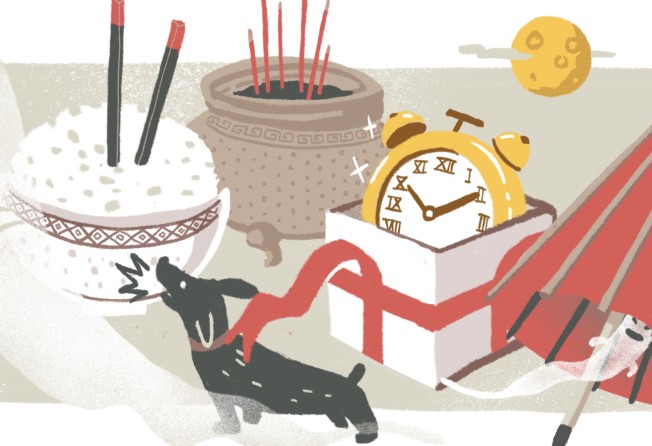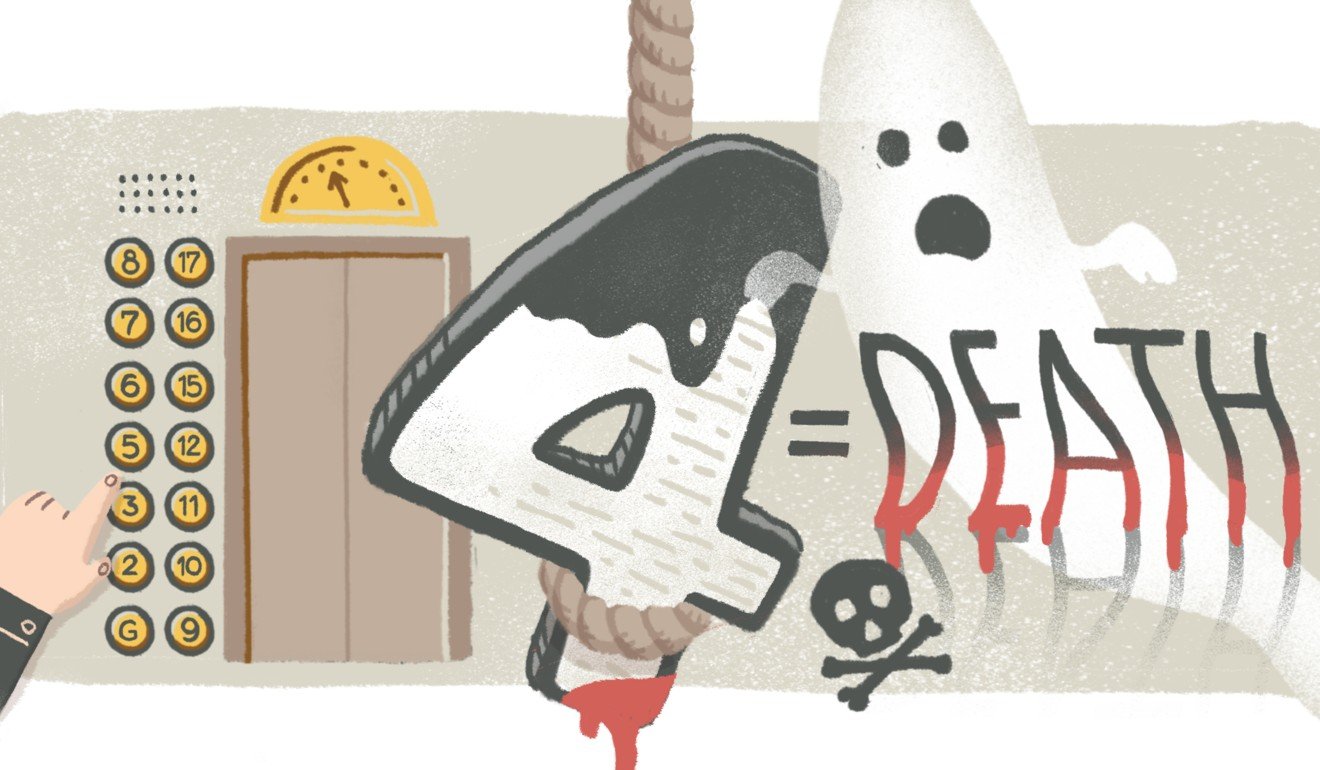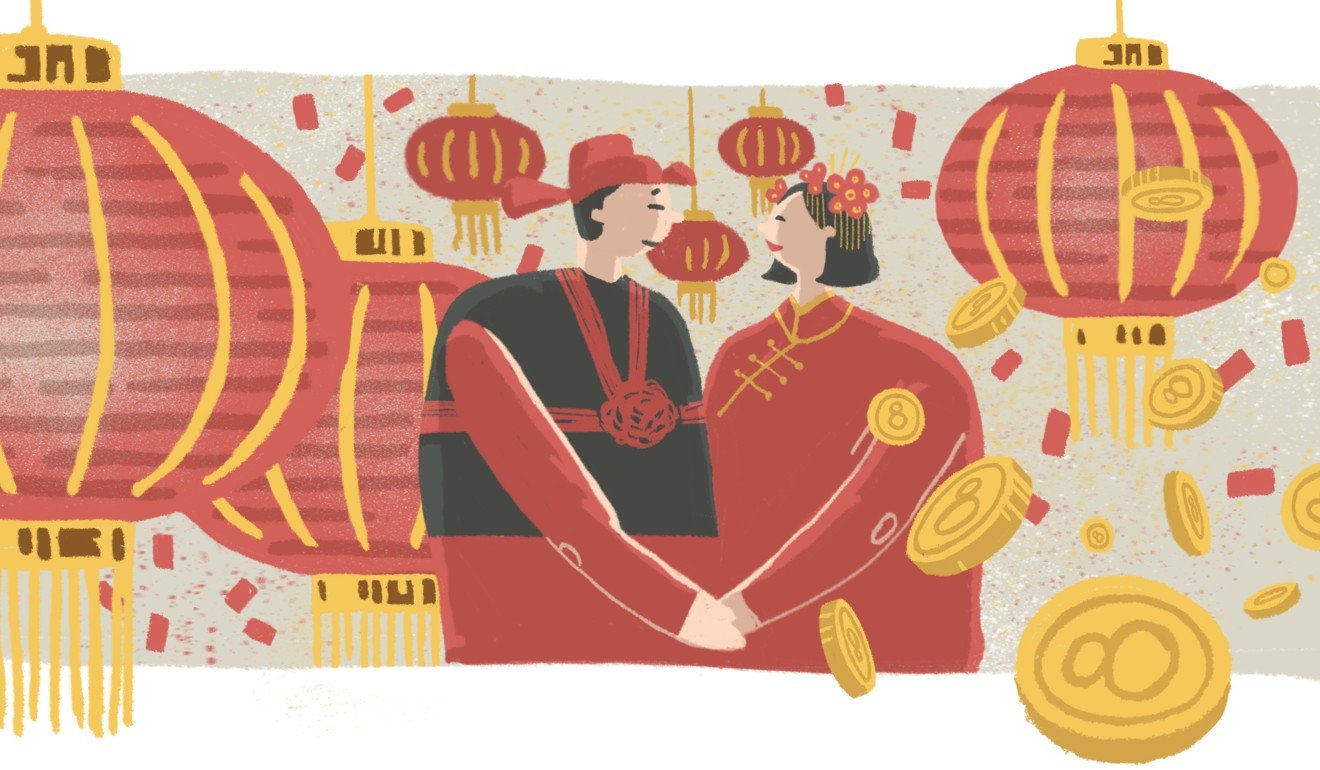
Auspicious numbers, no-go presents and self-grooming quirks: a guide to Hong Kong feng shui and superstitions
- City still retains practices steeped in tradition and beliefs, from the sound and pronunciation of numbers to the flow of energy through spaces

When construction on the Bank of China Tower started in Central, Hong Kong in 1985, urban legend has it that the owners of the nearby HSBC Building were aghast at what they saw as a bad omen – the sharp corners of the tower were likened to a knife cutting into nearby structures.
A series of unfortunate events, including an economic downturn and the sudden death of then Hong Kong governor Edward Youde a year later, convinced feng shui believers their fears were warranted.
The worried owners of HSBC Building, after consulting feng shui experts, then installed two maintenance cranes in the shape of cannons on top of their structure in a bid to aim it at the rival bank’s “knife edge” and deflect the bad energy.

The episode reflects how cosmopolitan Hong Kong still respects tradition. Another more ubiquitous sign of local superstitions is how most buildings skip numbering the 4th floor because in Cantonese, the digit four sounds like the word “die”.
Following the Lunar New Year festivities, the Post explores other Chinese beliefs that still prevail in modern-day Hong Kong.
Why shun the number four?
Many of Hong Kong’s superstitions have their roots in homonyms and rhyming words. The number four is not the only inauspicious number – “14” sounds like “definite death”, while “24” sounds like “easy death”.

Because of Hong Kong’s colonial past, buildings, especially hotels, may also skip the 13th floor, which in the West, is a number considered unlucky. This, coupled with floors such as the 4th, 14th, 24th and other denominations, may mean that a Hong Kong building with a listed top floor of 100 may well have less levels than that.
Certain numerical combinations, which often include the number four, can also be bad omens – “5354” in Cantonese sounds like “not alive, not dead”, referencing the sinister limbo between life and death, while “9413” could mean “90 per cent dead, 10 per cent alive” – an ominous way of phrasing a narrow escape.
What are some inauspicious actions that one should avoid?
Never stick chopsticks vertically into your food – especially a bowl of rice. This resembles the burning of incense sticks for the deceased.
Clipping one’s finger or toe nails at night is not advisable as it is believed to attract ghosts. There is no specific reason for this, but multiple East and Southeast Asian cultures, including China, Japan, the Philippines and Malaysia, have the belief.
Do not give anyone a clock as a present. In Cantonese, “giving a clock” sounds like song zung, which could also mean to attend funeral rites.
What other superstitions are there?
Animals are thought to be able to see spirits. If your pets are agitated for no reason, some believe it is because they can sense spirits nearby. Parents often tell their children that if one points at the moon with an index finger, the tips of one’s ears will be cut off for the rude act. Legend has it that this is a retaliation by the moon goddess Chang’e.
Spirits are thought to live in dark spaces, such as inside a folded umbrella. Therefore, opening umbrellas indoors is seen as releasing them into your home.
Leaving behind grains of rice in one’s bowl after a meal is frowned upon, because these are believed to represent scars and blemishes on one’s future partner.
What else can be done to avoid bad luck?
Many of Hong Kong’s most famous buildings and parks are designed with feng shui in mind. The system advocates harmony by facilitating the flow of chi (or energy) through spaces. Feng shui can affect happiness, prosperity and business. Luckily for the city, the natural shape of Hong Kong Island, with its mountainous terrain providing unobstructed views of Victoria Harbour, is thought to have very good feng shui.
Surround yourself with red: black and white are unlucky colours, but red is a colour of celebration. In imperial times, red represented power, confidence, and status. Today, the colour symbolises happiness, prosperity and good luck. Because of this association, traditional Chinese wedding dresses, festival decorations, lanterns, and money packets given to the young and singles as blessings from elders are all red.

Just as the number four is considered unlucky, the numbers six, eight and nine are believed to be auspicious. In Cantonese, six, or luk, sounds like “good fortune” and “happiness”. In imperial China, the number nine was associated with the emperor and matters relating to him. Imperial examinations were organised under the nine-rank system, and the emperor’s robes were often adorned with nine dragons, while officials were awarded nine bestowments for loyalty and hard work.
Additionally, the number nine sounds like the Cantonese word for “long-lasting”. Of all numbers, eight – which is homophonous with the word “prosper”, is the luckiest. As a result, any phone number, licence plate, or address with an eight among its digits is highly sought after.